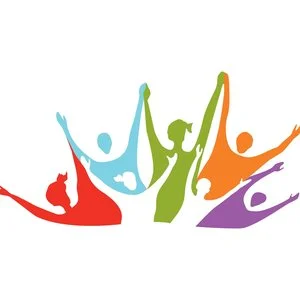Photo Credit: Tostan International
““You have to start by getting people coming together around what is really important to them.””
Molly Melching is the founder and CEO of Tostan, a Senegal-based NGO with a mission to empower African communities for sustainable development and social transformation with respect for human rights. Tostan and Molly have gained international recognition for their Community Empowerment Program that has resulted in over 7,500 communities across eight African countries voluntarily abandoning female genital cutting and marriage under 18. Tostan is a recipient of the Skoll Award For Social Entrepreneurship and the world's largest humanitarian prize, the Hilton Humanitarian Award. Molly, on behalf of Tostan, also received the Thomas J. Dodd Prize in International Justice and Human Rights.
On Leading Transcript
Seana Lowe Steffen, host: In the world of possibility, if you could change one thing with a snap of your fingers right now, what would you change and why?
Molly Melching, guest: Hmm. I have to think about this, now. I hesitate to answer that question because I feel like I would not want to change things with a snap of the fingers because I feel like part of change involves process, and if you don’t go through the process, you lose so much of the meaning that comes with change. Even though sometimes it is difficult, and it’s a bit overwhelming, still what I have seen in the process of really deeply entrenched change is that going through that process has led to amazing empowerment on the part of women. The fact that it just didn’t happen, but that there was a process that they went through that they then can use for many other things, so I would say I would not want to make that change with a snap of the fingers. Actually, I was thinking, “Well is there some one thing that I would do?” Of course, rape and violence against women, all the horrific things that happen to women particularly, and to people in general, if we could end violence with a snap of the fingers, it would be fantastic.
Seana: When you say process, could you say a little more about that?
Molly: I think that a lot of confusion comes when people look at what I call social norms that are traditions or customs, habits that people have, and somehow people believe that men and women and children and adolescents are attached to those social norms as being sort of the end, and not a means to another end. I think that from all of the work we have been doing at Tostan, we recognize that when you take some social norm such as female genital cutting, it was not an end in itself. It was not the cutting that was important. It is a tradition, yes, but it wasn’t done for that specific tradition, but rather it was done to reinforce the identity, the unity, the belonging. It was done to make women be respected members of the community, to get a certain amount of status and influence within the community. It was also done as an initiation right in terms of going through a process of suffering, physical suffering, because this is what life was all about - that they would be confronted with enormous challenges for survival that would involve physical pain and mental pain and difficult situations that would arise given the harsh environment we live in in Africa. So if you look at it in terms of that being the end result, that’s why they were doing it. ...then what you would do is, you would say, “Why do we do this? Why is this necessary?” Let’s look at this now in terms of, “What are our real values?” We look at this often and say it’s the moral, social, and legal norms that are the regulatory mechanisms in a society, okay, and the social norms are those that regulate feelings of belonging and respect and you don’t want to not do this because you will be rejected. The moral norms are those values, almost the universal values and principles of do no harm, let’s live in unity and peace and security, and that everyone has a right to be respected, live in dignity. Those are things that most people could agree upon whether they live in America or Africa, and by looking at those and asking people, “What are your deeper values? What do you want for your community and your society?” I think that, what we found, because we’ve done this many times, this is our whole approach, is to get people to come to a consensus around what those deeper moral values really are, and then saying, “Now let’s look at some of the things that we did. Not because we are bad people, but because maybe 2000 years ago, we thought this was a way of achieving that goal, and now we are living in a different society. Things have evolved. We have new information, and particularly that new information which is often scientific, very objective, which we can actually look and say, ‘Yes, that’s right. This has led to this health problem’.” Now let’s say, “Do we want to maintain this, because it was just a means to an end, and was not why we were doing it?” Therefore, it is easier for people to come together around what they really value and hold as dear, and come to consensus around those values together, and then come together and say, “Wait a minute. Harming a girl is perhaps, because we have seen that girls have died, they have hemorrhaged, they have had problems when they are married, they have had problems at childbirth. It’s an unnecessary violence. And since we are now working towards wellbeing, health, happiness, unity, this could actually prevent us and hinder us from achieving what’s really important to us. So you are tapping in to their moral norms, but you have to start with that. You have to start by getting people coming together around what is really important to them. Once they define that, it becomes much easier for them then to look at what they are doing and decide together.
Seana: Any lessons for leadership?
Molly: If you are working on issues of concern where there is violence against girls and women or against men, too, it really is a question of understanding and empathy - understanding that people are born with scripts and that they are in their theater, and you don’t get them to change by going in and saying, “I’m right and you’re wrong,” but rather by seeing that there are alternatives, and letting them reflect on this. It’s a process. It doesn’t happen overnight, so it’s a question of perseverance and patience. That is critical. A lot of people do not have the patience.
Seana: How does one allow for the possibility of a village choosing otherwise?
Molly: Just trust people that they will do the right thing, and I think usually people do do the right thing when they have the information and when they are not attacked. People generally are open. As Paolo Freire said, you must use dialogue and vocabulary that opens people to dialogue and does not shut the doors to dialogue.
Seana: What would you say those working for global sustainability and planetary wellbeing need to be successful at this time in our evolutionary history?
Molly: I think they need to get to the grassroots.
Share Molly's Restorative Leadership Message
Click each social media image to download and share! #leadershipmatters #onleading
Envision Dignity For All
Tostan empowers African communities to bring about sustainable development and positive social transformation based on respect for human rights. We believe that through this mission we can ensure every person—woman, man, girl, and boy—is able to live a life of dignity.
Inspirational and beautifully written, However Long the Night: Molly Melching's Journey to Help Millions of African Women and Girls Triumph is a passionate entreaty for all global citizens. This book is published in partnership with the Skoll Foundation, dedicated to accelerating innovations from organizations like Tostan that address the world's most pressing problems









